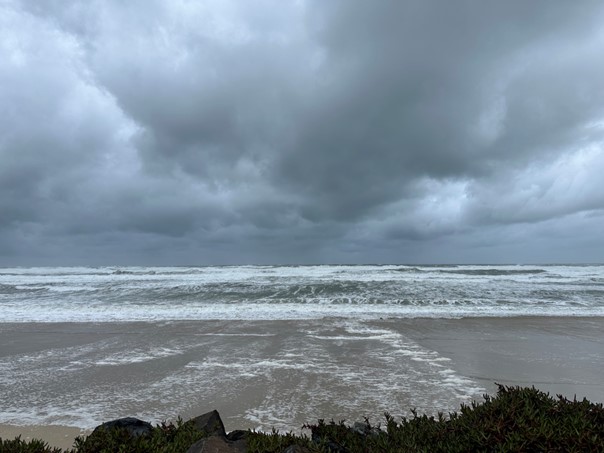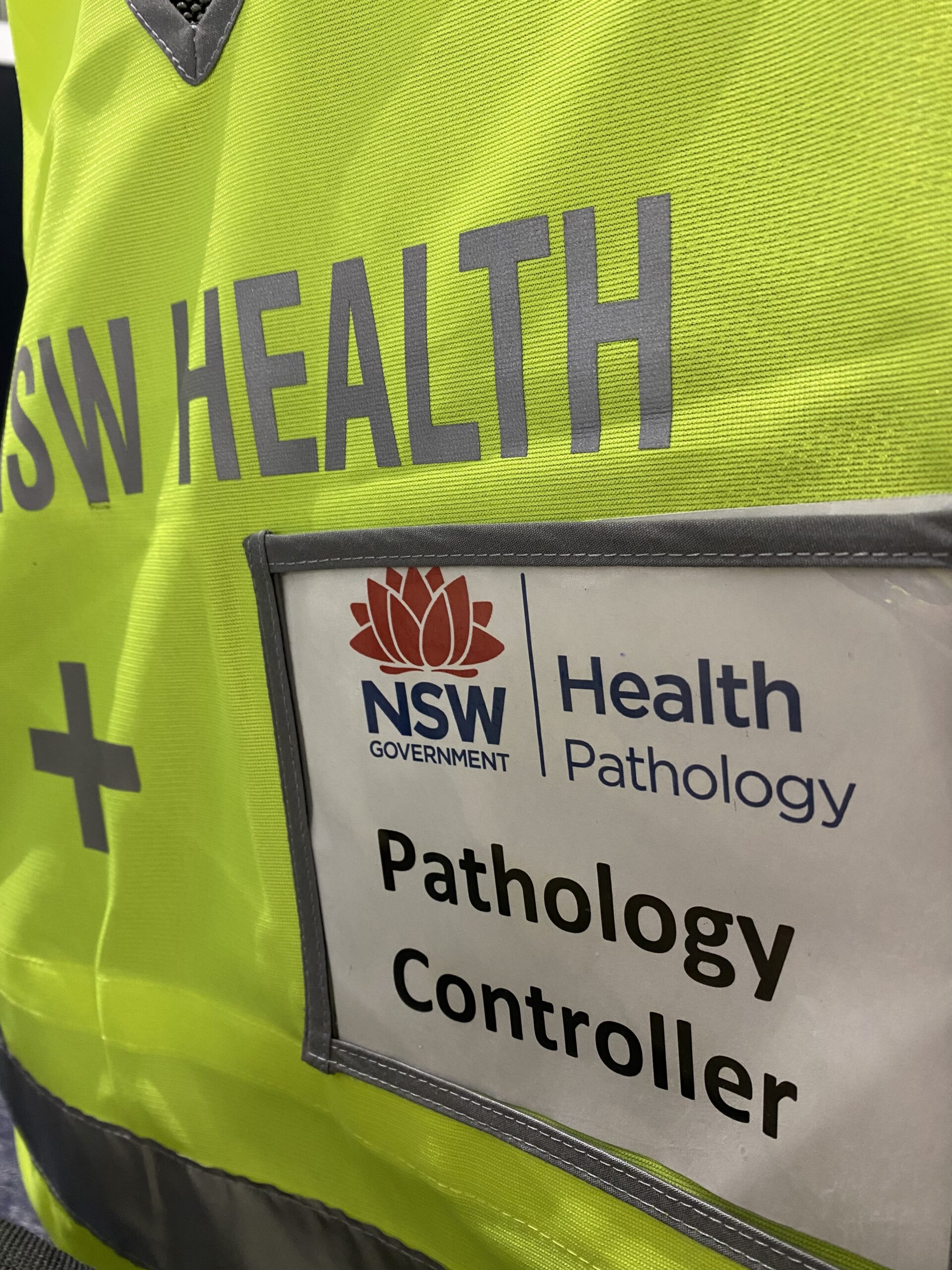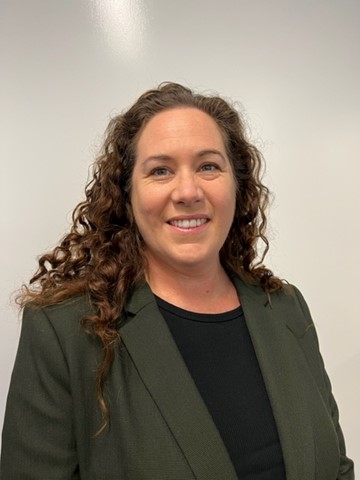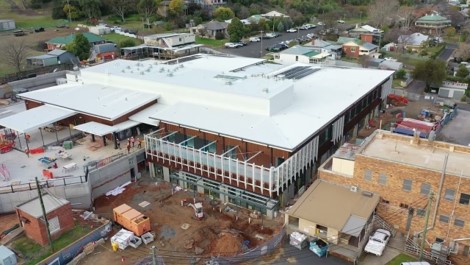Media Contact

When Tropical Cyclone Alfred made landfall on Saturday 8 March 2025 as a category 1 cyclone, our people were prepared, ensuring vital blood supplies and pathology laboratories were available to communities in need.
The first tropical cyclone to cross the NSW and south-east Queensland coastline in 50 years brought destructive winds and significant rainfall and flooding. In NSW more than 80,000 homes and businesses lost power from Tweed Heads to Grafton, with thousands evacuated from their homes.
Despite the disruption, NSW Health Pathology’s extensive network of laboratories, collection centres and couriers continued their work, ensuring vital health services were able to function throughout the emergency.
For Cain Byrnes, A/NSW State Health Pathology Controller, careful preparations in the lead up were key.
“It was a matter of bringing people together and listening to what each region needed,” he said.
“We set up an Incident Management Team well in advance to begin preparations, bringing together our lab managers, senior operations representatives, Point of Care Testing, and a range of support portfolios to ensure we were best prepared for every situation,” he said.
“We created the conditions and gave local teams the support they needed to manage the response.
“I was so impressed with the way people across our labs worked together to ensure we had planned for any eventuality – at Lismore, Tweed, Grafton, Port Macquarie, Coffs Harbour and Kempsey.
“In particular, I’d like to thank our Grafton manager, Meredith Wiggs. She had been in the job less than 2 weeks when she was asked to begin preparations for this event. She stepped up and led her team, ensuring rosters were filled and resources available.
“Her own accommodation was flooded during the storm, but she remained at work, sleeping at the hospital overnight and continued to serve her community.”

“It was not what I was expecting to face just two weeks into my new job,” said Meredith Wiggs.
“I was so grateful to be offered a place to sleep in the nurse’s accommodation at the hospital, and to our Lismore laboratory for supporting our small team here at Grafton.
“Our lab’s new chemical pathology analysers were due to be installed just days after the cyclone hit and all that work and training for staff had to be delayed. But we’re getting back on track now.”
Several rooms were damaged by flooding at the new Tweed Heads laboratory, where staff also stayed for several nights to ensure pathology services could continue.
“I live across the border in Queensland and lost power for more than a week at my own home – but the staff here were fantastic,” said lab manager Owen Van Eck.
“Everyone pulled together, staying at the lab overnight and working extended hours to keep services running for our community.”
Our Coffs Harbour laboratory played a crucial role in the cyclone response, becoming a central hub to store essential products, such as blood, with Port Macquarie on standby.
NSW Health Pathology’s Emergency/Disaster Manager Scott Pearce said the response involved pooling resources to ensure each area had enough staff and supplies.
“People were looking out for each other and doing everything to assist neighbouring laboratories,” he said.
“Lismore set up a roster to send staff every day to Grafton which was in need of additional support.”
In Kempsey, lab manager Alison Stevenson had the additional responsibility of ensuring the cattle on her farm were safe from floodwaters.
On Sunday she had to race home to rescue some cattle stranded in rising waters.
“We had moved most of our cattle the day before, but we got a call that the river had overtopped the banks and would start to affect cattle in the paddocks along the Macleay Valley Way,” Alison explained.
“We were asked to help as the owner was isolated at another property and we had to move them across the road. We were lucky the SES came along and helped stop traffic so we could get the cattle to safety.”

Lismore lab manager, Chris Nicol says he was proud to be leading a group of staff who were so focused on helping their colleagues.
“Lismore has been through so much flooding in recent years, it was tough for many of the staff to go through it all again,” he said.
“Not only did they go above and beyond to ensure services continued for their local community, they also didn’t think twice when asked to go to Grafton to assist the laboratory there.”
Chris says he was particularly relieved that his local coffee shop remained open on the weekend the cyclone hit.
“It was a huge boost to be able to get my morning coffee despite all the chaos going on!”

Senior Operations Manager for the North Coast Michael Crowther says he was proud to be leading the North Coast team.
“The dedication of the staff ensuring we were able to support the communities we work and live in was outstanding,” he said.
“Even when facing challenges with their own properties at risk, everyone worked together to support each other and our service to patients.
“It was truly wonderful to see the level of cooperation between the labs across the north coast.”
Cain Byrnes says there will be lessons to be learned from the response but overall showed the organisation working at its best.
“At the heart of what we do at NSW Health Pathology is look after people, and that was clearly evident in our response to Cyclone Alfred.”














